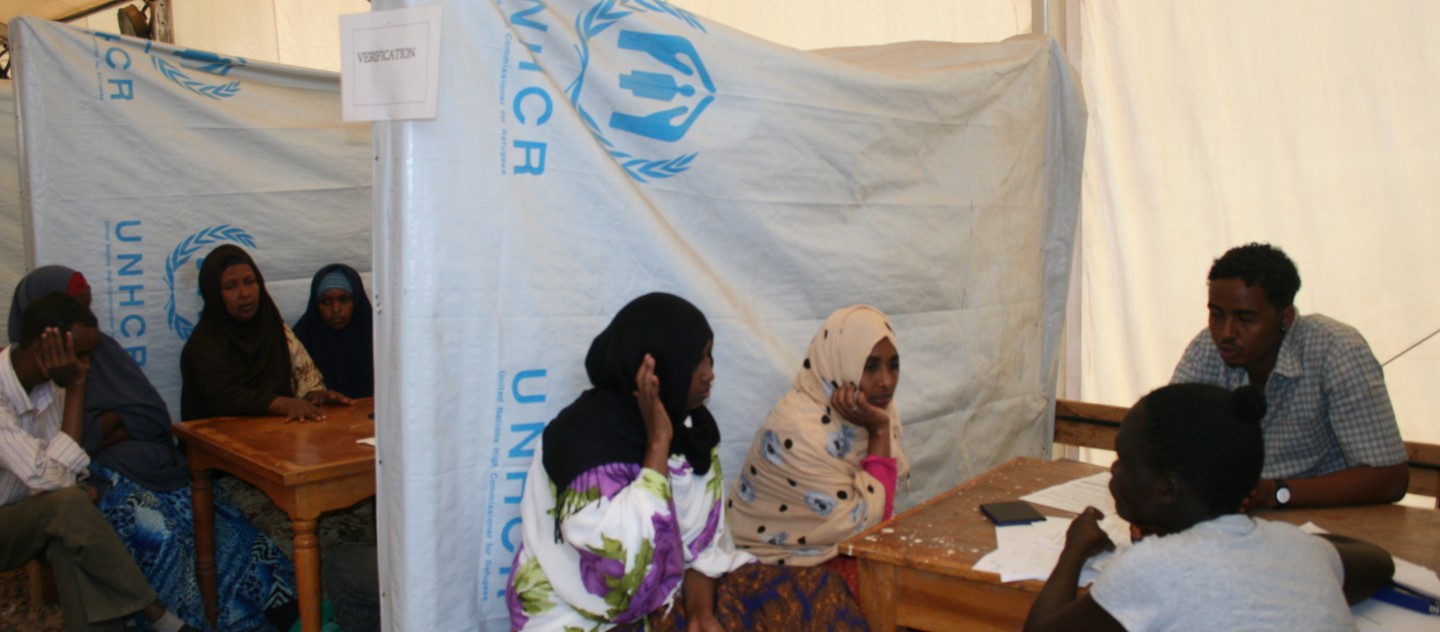In Kenya, the Refugee Affairs Secretariat (RAS) conducts refugee status determination. RAS is further responsible for refugee management in Kenya including reception, registration, issuance of documentation. The RSD process begins when an asylum seeker registers their application for asylum with RAS. RAS can be approached at their offices in Dadaab, Eldoret, Kakuma, Nairobi (Shauri Moyo office), Nakuru and Mombasa. All asylum-seekers, excepts persons from South Sudan, then have an individual interview in Kakuma and in some specific situations in Nairobi which is the basis for a decision on the application. This decision can either be a recognition of refugee status or rejection of the asylum application. Applicants whose application are rejected have an opportunity to appeal with to the Refugee Appeal Board and if required to the Hight Court.
RSD is conducted on a first-come-first-served basis, however some cases may have to be prioritized due to specific vulnerabilities. The complexity of an RSD application and the information required, has an influence on the timeframe between an interview and a decision. After an asylum seeker has had an RSD interview, RAS staff will draft a recommendation which will go through a quality review after which the Commissioner for Refugee Affairs takes the decision and the decision letter is prepared. Depending on complexity of the application these stages might have to be repeated which makes that timeframes vary one case to another.
There are slightly over 50,000 asylum seekers in Kenya who comprise of 10% of the current number of people of concern which at 31 July 2020 totalled 496,289. Considering the high number of asylum seekers, there are long delays in the RSD process. Steps are being taken to address these delays with priority being given to individuals that applied for asylum earlier.
UNHCR provides both technical and financial support to the actors in the RSD process; these include the Refugee Affairs Secretariat, the Refugee Appeals Board and the High Court of Kenya. UNHCR allocates funding from donors for first instance and appeal processes. Developing the capacity of the actors on all aspects of the RSD process through training, coaching and other technical advice is continuous. The priorities for the RSD process is as follows:
- To bring the timeframes of the first instance RSD process in line with those stipulated in the Refugee Act
- To strengthen the quality of RSD through the implementation of a Quality Initiative which includes the strengthening of the in-house capacity of RAS to conduct training on RSD.
- At the level of RAB and High Court appeal, the priority lies at mainstreaming training capacity on refugee protection and RSD through development of a training curriculum for the Kenyan Judicial Training Institute (JTI).
Since the onset of COVID-19, the Government of Kenya has implemented various precautionary measures to curb its spread. Following those measures, RAS and UNHCR have put in place strict protocols to ensure business continuity albeit on a reduced scale.
Individuals awaiting determination of refugee status are requested to keep RAS and UNHCR informed of any changes to their contact details; this can be done through the Refugee Assistance Helpline email [email protected] or 0800720063 (Toll-free Telephone).”

